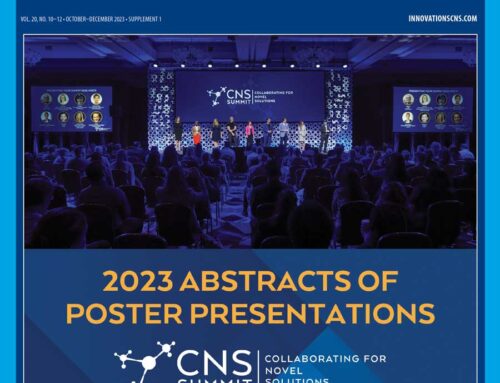by Carrolee Barlow, MD, PhD; and Steven D. Targum, MD
Psychiatry 2007;4(5):18-20
Introduction
Practicing clinicians are confronted with partial treatment responders every day. The most commonly prescribed antidepressant drugs (SSRIs and SNRIs) are effective in many but not all depressed patients as the recent STAR-D study clearly demonstrated.[1] Only 30 to 45 percent of depressed patients in this large, NIMH-sponsored study achieved full remission on a variety of commercially available antidepressants in the first two steps of treatment. Hence, new antidepressants with new modes of action are needed. One promising approach that has recently emerged is the application of hippocampal neurogenesis to drug discovery. In this column, Carrolee Barlow, MD, PhD, the Chief Scientific Officer at BrainCells, Inc. (a California drug development company), describes a neurogenesis platform that may transform the traditional approach to drug discovery.
What is neurogenesis?
Dr. Barlow: Simply stated, neurogenesis reflects the process by which new neurons are created. There was a major turning point in 1998 when Eriksson and Gage demonstrated that neurogenesis takes place in the adult human brain throughout the life cycle.2 This finding, and several confirmatory studies that followed, reversed the prevailing belief that adults could not generate new neurons.3 Of course, this remarkable finding has broad implications for our understanding of central nervous system disorders, including mood and cognitive disorders as well as posttraumatic injuries.
Does neurogenesis occur throughout the brain?
Dr. Barlow: No. In fact, neurogenesis occurs predominantly in only two areas of the brain: Within the subventricular zone (SVZ) of the lateral ventricles and the subgranular zone (SGZ) of the dentate gyrus within the hippocampus. Our focus at BrainCells has been on the SGZ because of the known association between the hippocampus and depression. We now know that 50 to 80 percent of the neural precursor cells in the SGZ can mature into neurons that migrate to the appropriate cell layer and form connections with other neurons.
Does hippocampal neurogenesis matter?
Dr. Barlow: We believe it does. Of course, we are just beginning to understand the relevance of neurogenesis in the clinical realm. Actually, the hippocampus is in a unique position to influence and be influenced by multiple brain areas that are associated with mood and cognition. Some recent studies have suggested that neurogenesis in the ventral portion of the hippocampus is associated with emotional behavior.[3] Remarkably, it has been demonstrated that every commercially available antidepressant is neurogenic, and that some putative antidepressants that have failed to be approved were not neurogenic.[4,5] Furthermore, using mouse models, Rene Hen at Columbia University has shown that knocking out neurogenesis actually blocks antidepressant action.[5]
How can this knowledge about neurogenesis help with new drug discovery?
Dr. Barlow: Based upon our hypothesis that hippocampal neurogenesis is a necessary factor for successful antidepressant activity, we believe we can find new drugs that are at least as potent as the currently marketed antidepressants that possess entirely different mechanisms of action. At BrainCells, we have developed a multifaceted in-vitro and in-vivo drug discovery platform that can identify drug candidates that are both highly neurogenic and likely to be safe in man as well. The in-vitro studies utilize proprietary human stem cell assays that allow us to explore several individual components of neurogenesis. Once a neural precursor cell is born, it undergoes specific developmental stages, including proliferation, migration into the granule cell layer, differentiation, and integration into the existing hippocampal neuronal network as fully functional, mature neurons. As the figure to the left demonstrates, we can evaluate neuronal proliferation, differentiation, migration, and survival. Each of these aspects of neurogenesis may have clinical relevance.
To date, we have analyzed the neurogenic potential of over 500 drug candidates. Some of these drugs have been taken into unique in-vivo animal models that confirm neurogenesis and have been correlated with behavioral models of depression or anxiety. We have found some drugs, which were not previously believed to be antidepressants at all, actually fit our “fingerprint” for new antidepressants. Some of these drugs will soon be evaluated in clinically depressed populations.

Can you give me an example?
Dr. Barlow: Currently, we are moving forward with a drug called BCI-540, which has novel modes of action, unlike currently marketed antidepressants, but nevertheless has a fingerprint that is similar to these marketed antidepressants. This drug has never been evaluated in depressed patients. Our results could represent a breakthrough in the way we identify and develop new antidepressants for these patients.
Can you make currently marketed antidepressants even better?
Dr. Barlow: I think so. As I mentioned, our assays allow us to look at multiple aspects of neurogenesis both in vitro and in vivo. This capability allows us to examine how test compounds affect the individual aspects of neurogenesis and subsequently correlate with our selected behavioral models. There may be compounds that can be added to marketed antidepressants to augment their acute effectiveness and enhance sustained efficacy as well. In fact, we have identified some relatively weak CNS agents that can be combined with non-CNS agents to turn them into potent antidepressant drugs. We anticipate conducting clinical trials with these combinations within the next year.
What is on the horizon for the science of neurogenesis?
Dr. Barlow: Ultimately, we hope to be able to use our evolving knowledge of hippocampal neurogenesis to translate preclinical findings into clinically meaningful treatments for depression and anxiety. The fact that the adult hippocampus can generate healthy, functional, new neurons throughout the life cycle promises to lead to new ways of understanding and treating some mental disorders, particularly depression.
Acknowledgments
We thank Chun Mei Zhao, Todd Carter, and Andrew Morse for the images.
References
1. Insel TR. Beyond efficacy: The STAR-D trial. Am J Psychiatry 2006;163:5–7.
2. Eriksson P, Perfilieva E, Bjork-Eriksson T, et al. Neurogenesis in the adult human hippocampus. Nature Med 1998;4:1313–17.
3. Morse AC, Barlow CB. Unraveling the complexities of neurogenesis to guide development of CNS therapeutics. Drug Discovery Today: Therapeutic Strategies. 2006;3(4):495–501.
4. Santarelli L, Saxe M, Gross C, et al. Requirement of hippocampal neurogenesis for the behavioral effects of antidepressants. Science 2003;301:805–9.
5. Dranovsky A, Hen R. Hippocampal neurogenesis: Regulation by stress and antidepressants. Biol Psychiatry 2006;59:1136–43.
AUTHOR AFFILIATION: Dr. Targum is on the editorial board of Psychiatry 2007. Presently, he is Chief Medical Officer at Brain Cells Inc., an executive-in-residence at Oxford BioScience Partners, and a consultant in psychiatry at the Massachusetts General Hospital, Boston, Massachusetts; and Dr. Barlow is the Chief Scientific Officer at BrainCells Inc., San Deigo, California.
ADDRESS CORRESPONDENCE TO: Dr. Steve Targum, Oxford BioScience, 222 Berkeley Street, Suite 1650, Boston, MA 02116.





